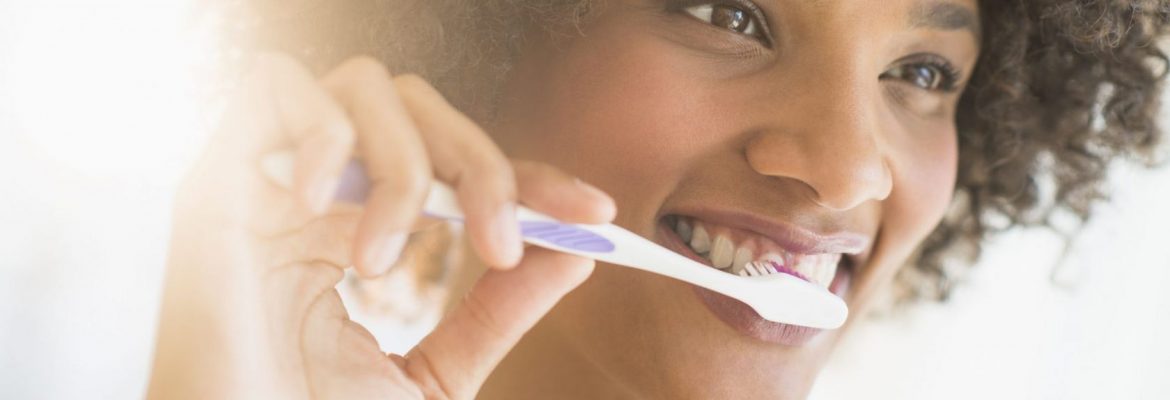Noticing blood when you brush? Here’s what to do about it
If you find yourself spitting blood after brushing your teeth, these are some simple steps dental experts say you should take to combat bleeding gums.
We’ve long been told the importance of brushing our teeth twice a day and avoiding excessive amounts of sugar to prevent tooth decay. From flossing to drinking plenty of water, these daily dentist-instilled duties are an important part of a regular cleaning routine.
Looking after our oral hygiene doesn’t just mean carefully cleaning each tooth; it involves ensuring gums stay healthy as they form the essential connective tissue surrounding our teeth.
You may also like
Why you should take a 10-minute walk after eating a meal
Noticing visible blood when brushing is undoubtedly an alarming thing to see, whether it’s a few droplets in the sink or having sore, irritated gums. And if your gums are red, swollen and bleed easily, this could be an early warning sign of gum disease.
Although that’s an overwhelming dental diagnosis to process, there are different stages of gum disease. The first is known as gingivitis, which can be reversed. If you ignore the signs, however, gingivitis can develop into periodontal disease and that’s when eventual tooth loss could occur. But what causes gum disease and how can these overall oral health changes be indicative of something going on in our body?

There are a few steps between spotting blood and experiencing serious implications, so it makes sense to be speedy about seeking help.
You may also like
Women are more likely to live with migraines, particularly around their periods – here’s why
What can bleeding gums be a sign of?
Dentist and Spotlight Oral Care founder Dr Vanessa Creaven tells Stylist: “Bleeding gums are a sign that there is inflammation within the gum tissues, gum disease or, if more severe, periodontal disease. This inflammation can be caused by hormone changes, ie pregnancy, menopause or as a result of the presence of plaque and calculus on the tooth structure.”
But the good news is, says Mr Mustansir Alibhai, consultant oral and maxillofacial surgeon at London Bridge Hospital (and part of HCA Healthcare UK): “If your gums bleed easily, it may be because of something simple, like using the wrong technique when you brush or floss. Or early, reversible gingivitis.”
When should you see a dentist about bleeding gums?
It’s important to act quickly, emphasises Dr Creaven: “As soon as you notice any bleeding within the gum tissues you should visit your dentist.”
Mr Alibhai agrees: “When early gum disease (gingivitis) is left unchecked and progresses, it can cause bad breath and a bad taste in the mouth, receding gums and teeth becoming loose.” He highlights that this is the stage when these particular symptoms become associated with more advanced gum disease (or periodontitis) and result in loss of supporting tissue for the teeth. He emphasises the important takeaway is that “although often irreversible it can still be treated”.
He adds that less frequently, bleeding gums can also be a sign of another health concern such as blood cancer or a vitamin deficiency. To be on the safe side, sore and swollen gums should always be checked out by a specialist.
You may also like
PCOS Awareness Month 2022: 9 things experts want you to know about living, eating and exercising with polycystic ovary syndrome
Three ways to help bleeding gums
The experts suggest simple steps to improve your gum health, while keeping a keen eye out for worsening of the bleeding and inflammation.
Invest in a new toothbrush
Perfect your teeth-cleaning product line-up, says Creaven: “Gum inflammation and bleeding can be treated/cured by using products that are specifically designed for gum health, including brushing your teeth twice daily with a sonic toothbrush and using a fluoride toothpaste.”
Book regular professional cleaning
It’s extremely important to regularly visit your hygienist and dentist for professional cleaning, Mr Alibhai emphasises: “Visits to a dentist and hygienist are not just important to prevent and treat dental decay but also for the health of our gums and the overall health of our mouths.”
Perfect your at-home brushing technique
While all of the above may seem straightforward, it is not just the frequency of toothbrushing and flossing that is important but the method in which it is performed, Mr Alibhai adds.
“An incorrect technique can be ineffective at removing plaque from the gum line, resulting in gum disease and can also cause tooth wear,” he concludes. And this highlights how imperative it is to avoid putting off those early gum concerns. With gum disease having both treatable and reversible elements, it’s well worth speaking to your dentist the moment you spot any soreness or bleeding.
Images: Getty
Source: Read Full Article
